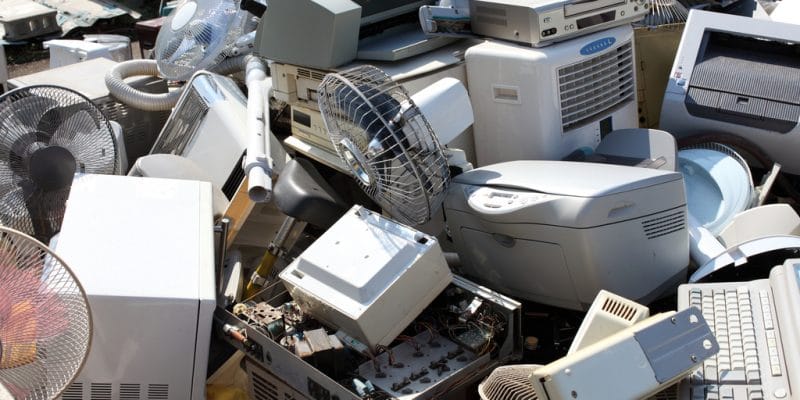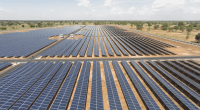The Federal Government of Nigeria and the United Nations Global Environment Facility (GEF) have decided to invest $15 million to improve the management of electronic waste that causes serious pollution problems in the country.
Nigeria is one of the African countries that receive thousands of tonnes of electronic waste from Europe and North America every year. It is difficult to give an exact figure on the amount of electronic waste that ends up in Nigeria. Research conducted by the United Nations University shows that 60,000 tonnes of electronic waste enter Nigeria each year through the port of Lagos alone. This amount of electronic waste could increase in the coming years, with the current context marked by the “categorical” refusal of Asian countries to continue to accept waste from Western countries. The latter could start looking for new destinations for their waste.
On site in Nigeria, the National Environmental Standards and Regulations Enforcement Agency (NESREA) estimates that 270,000 tonnes of electronic waste arrived in the country in 2017. This means an increase of 170% over 2009.
Towards an improved electronic waste management method?
In the various cities of Nigeria, the most disadvantaged populations manage to survive by collecting scrap metal, or by exploiting certain components that can be used on electronic waste. In doing so, they are exposed to hazardous products contained in these wastes, such as lead. According to the International Labour Organization, more than 100,000 people dismantle each e-waste by hand to extract marketable components. The rest is simply burned, causing heavy environmental pollution. The same phenomenon is observed in a neighbouring country such as Cameroon.
The United Nations and the Government of Nigeria have decided to address this problem by launching a project called the “Circular Economy Approach for the Electronics Sector in Nigeria”. The project will be implemented by the NESREA with a budget of $15 million. Funding comes from the United Nations Global Environment Facility (GEF). “This intervention by the Global Environment Facility aims to stimulate the development of a sustainable circular economy for electronic products in Nigeria,” says Ibukun Odusote, Permanent Secretary of the Nigerian Ministry of Environment.
Legislation on electronic waste…
The other objective of the project “Circular Economy Approaches for the Electronics Sector in Nigeria” is to support the Federal Government of Nigeria in establishing legislation that would engage producer responsibility, in collaboration with the private sector to develop profitable value maintenance businesses, including recycling and disposal systems for electronic products. Such an approach could guarantee jobs for disadvantaged people who handle electronic waste without protection on a daily basis.
The project also aims to develop systems for the disposal of unusable electronic waste. If this model is successful in Nigeria, the UN will develop it in other African countries where e-waste management is problematic.
Jean Marie Takouleu







